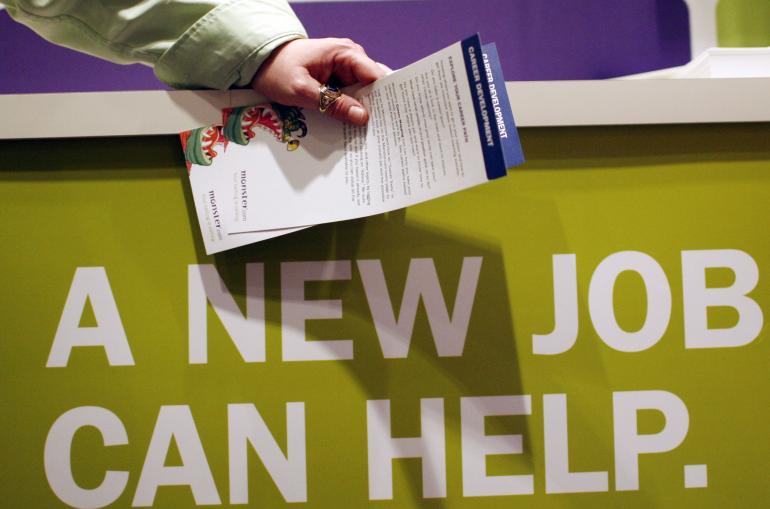If you’ve been reading current economic news, you’ve probably noticed the positive employment and hiring expectations for 2015. Here is one of many reports I’ve read in the last couple of weeks:
Companies will be ringing in the New Year with more job openings. More than one third of employers expect to add full-time, permanent employees in 2015, the best outlook…since 2006. Salary increases are also on the agenda of hiring managers.
The amount of companies planning to hire in 2015 is up 12 percentage points over last year…
Is this good news for the real estate industry? I believe it is. But to understand why, you’ll need to become familiar with the importance of labor market churn.
Labor Market Churn
In simple terms, labor market churn (ie. the percentage of the labor force leaving their current job and moving into a new one) is an indicator of how safe employees feel about abandoning their current job in search for a new one.
When the labor market is dismal, the churn is low. Employees hang onto their jobs, even if they don’t like them.
When the labor market is bright and hopeful, the churn is high. Employees are more comfortable with seeking out new opportunities.
Labor Market Churn is Recovering Slowly
According to a recent interview with Mark Ferguson, the CEO of CareerBuilder, labor market churn is on the rise, but not as quickly as economists expect:
A lot of healing has yet to take place when it comes to the day-to-day functioning of recruiting and hiring in the U.S.
Most hiring is a product of labor market churn, which measures the rate at which people move between jobs.
During the recession churn rates in the U.S. plummeted by 23 percent, and have not recovered significantly through 2013.
This means fewer workers are leaving jobs for better ones. This situation hurts productivity and can depress wages, as it suggests workers’ talents aren’t being used as effectively as possible.
Ferguson went on to say the labor market churn rates did improve in 2014, but only by a few percentage points. Of course, this is frustrating companies such as CareerBuilder and others who make more money when job churn is high.
“Time to Hire” is Slow for Most Companies
So, what’s behind the slow churn? Ferguson weighs in on this as well:
Part of the decline in churn has to do with the fact that employers are taking a longer time to fill certain positions. Forty-two percent of hiring managers surveyed by CareerBuilder reported that their companies currently have job vacancies that stay open for 12 weeks or longer, up from 35 percent last year.
Notice the job vacancy metric cited: It’s common for a job vacancy to “stay open for 12 weeks or longer.” In essence, companies are still being cautious on new employees and it generally takes them a long time to pull-the-trigger on a new hire.
What does this mean for the candidate? They commonly wait 3 months or longer to get hired. This is much longer than most people think it will take to transition into a new role.
Your New Competitive Advantage
A savvy real estate hiring manager will use this information to his or her advantage. How? By simply pointing out that companies in today’s economy hire slowly, and the hope of finding a new job quickly may not be a reality
As you know, one of the most common objections to starting a real estate career is the time it takes to gain traction as a new agent and experience a positive cash flow. The playing field is now more level than it’s ever been—no matter what career field candidates choose, they are likely to have a long and uncomfortable transition between jobs.
If you face this objection in an upcoming interview, you’re now armed to deal with it more effectively. At the right point in the interview, put on your “economist hat” and share a metric making the transition to a real estate career less daunting.
Questions or Comments? Reply to your WorkPuzzle subscription email.
Didn’t get the WorkPuzzle email? Subscribe below. We promise not to share your email with others or use it for any other purpose but delivering WorkPuzzle notices.



